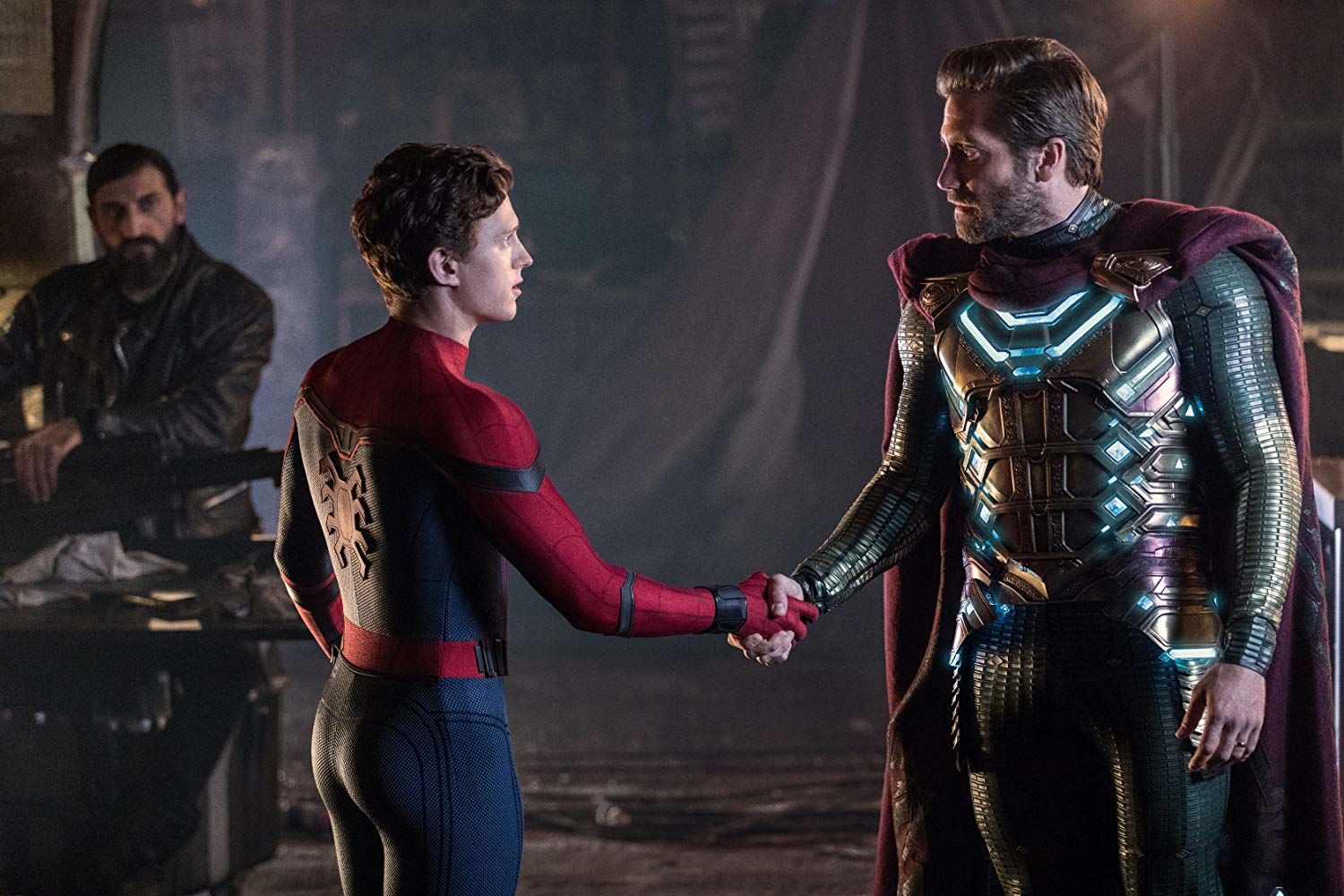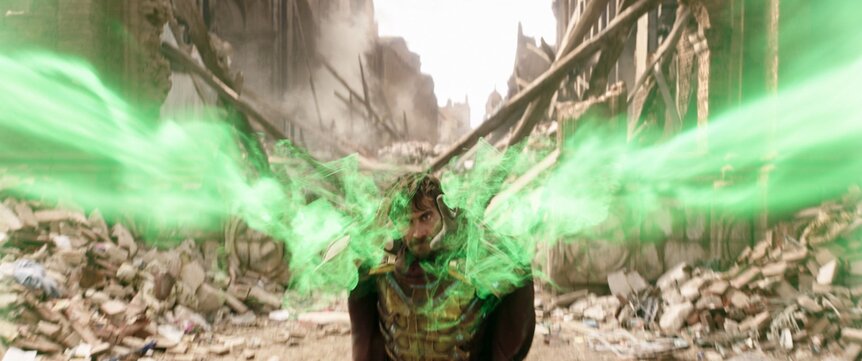Create a free profile to get unlimited access to exclusive videos, sweepstakes, and more!
How Spider-Man: Far From Home is the first Marvel movie about making an MCU movie

How do you cap off an unprecedented cinematic chain of events? What is the proper coda for 11 years spent remaking the international motion picture industry, a fitting finale for a run of 22 movies and endless plot line intersections that turned a secret experiment into a storytelling juggernaut and rewired how the film business functions?
The masterminds running the Marvel Cinematic Universe decided to make a movie about that very challenge — and make a movie about making a movie.
**SPOILER WARNING: There are spoilers for Spider-Man: Far From Home below.**
One of the ongoing questions in play in Spider-Man: Far From Home, which opened to $580 million worldwide last week, is who will take on the mantle of the late Tony Stark. The founding Avenger, played by Robert Downey Jr. in the centerpiece role of the MCU’s first 11 years, wants young Peter Parker (Tom Holland) to be “the next Iron Man,” stepping up into the role of charming New York-based tech genius and world savior. It’s a similar question to the one being contemplated by Marvel Studios’ president Kevin Feige, the architect of the MCU, as he stares down a future without Downey, Chris Evans, and, eventually, Scarlett Johansson.
Judging by the reception to Far From Home, and the seismic moment in the film’s mid-credit scene, Feige may have found the same conclusion as Stark.
“There's a meta element that we were pretty aware of the entire time,” Chris McKenna, the Far From Home screenwriter, tells SYFY WIRE. “It's a movie with a lot of commenting on 'Where do we go now, where does the MCU go now?'”
Far From Home’s movie business metaphor runs far deeper than just that simple parallel conundrum; the whole movie is a meditation on the first 11 years of the MCU and how superhero movies have become modern myths — and vital escapism — in increasingly turbulent times. The film’s villain, the deceptive Mysterio (Jake Gyllenhaal), is presented in this film as a rogue tech genius named Quentin Beck, but in his original comic book origin story, he was a movie special effects artist and stuntman, trained to use smoke and mirrors to create illusions that fool the audience.
Here, he employs more advanced technology like drones and holograms, but the spirit of his work is the same (as any good VFX pro would tell you).
We meet Mysterio as he battles with massive meteorological monsters known as Elementals. Gyllenhaal’s Beck inserts “himself” into giant battles in the middle of different European cities; the reality is that he’s safely ensconced far away from the disaster zones, watching the fully costumed Mysterio, with his foggy fishbowl helmet and green cape rendered by a stunningly realistic hologram. All of these epic battles are rehearsed on a big soundstage, with Beck even going so far as to wear a motion capture suit, the dotted spandex costume that has come to represent visual effects production.
It doesn’t take much to see the parallels.
“The world is hungry for superheroes,” McKenna says, “and filling that void with a lot of special effects and sleight of hand. He even has his own production crew, including a writer who is literally phoning it in by the end.”
Indeed, as things begin to go awry for Beck and his crew, they need to improvise new scenes and even dialogue for the fake hero to relay to the news media and the world at large. Beck has a writer working remotely, churning out lines and pages to adjust for each twist and turn, as often happens on the set of actual movies. They’re all ridiculous, but at this point there’s no point in questioning them if you’re not aware of Beck’s secret.
That’s key, too. In the beginning of the film, Beck claims the Elementals are invaders from his parallel reality in the multiverse. Here, the multiverse — a staple of Marvel comics for decades and the linchpin of last winter’s animated hit Spider-Man: Into the Spider-Verse — is a fake-out, a story concocted to fool the news media, S.H.I.E.L.D., and Peter Parker. But after the Snap and all that’s happened in the MCU, people buy into it. It's a phenomenon that feels like an allusion to the absurd seriousness with which some fans discuss the fictional details of these movies (an observation that is mine, not McKenna's).
“Even Quentin in a midpoint scene says it was a ridiculous story and everyone bought it,” McKenna says, laughing. “Everyone is hungry for a story, even as ludicrous as they are. They need some reason to sort of escape their dreary lives.”



























